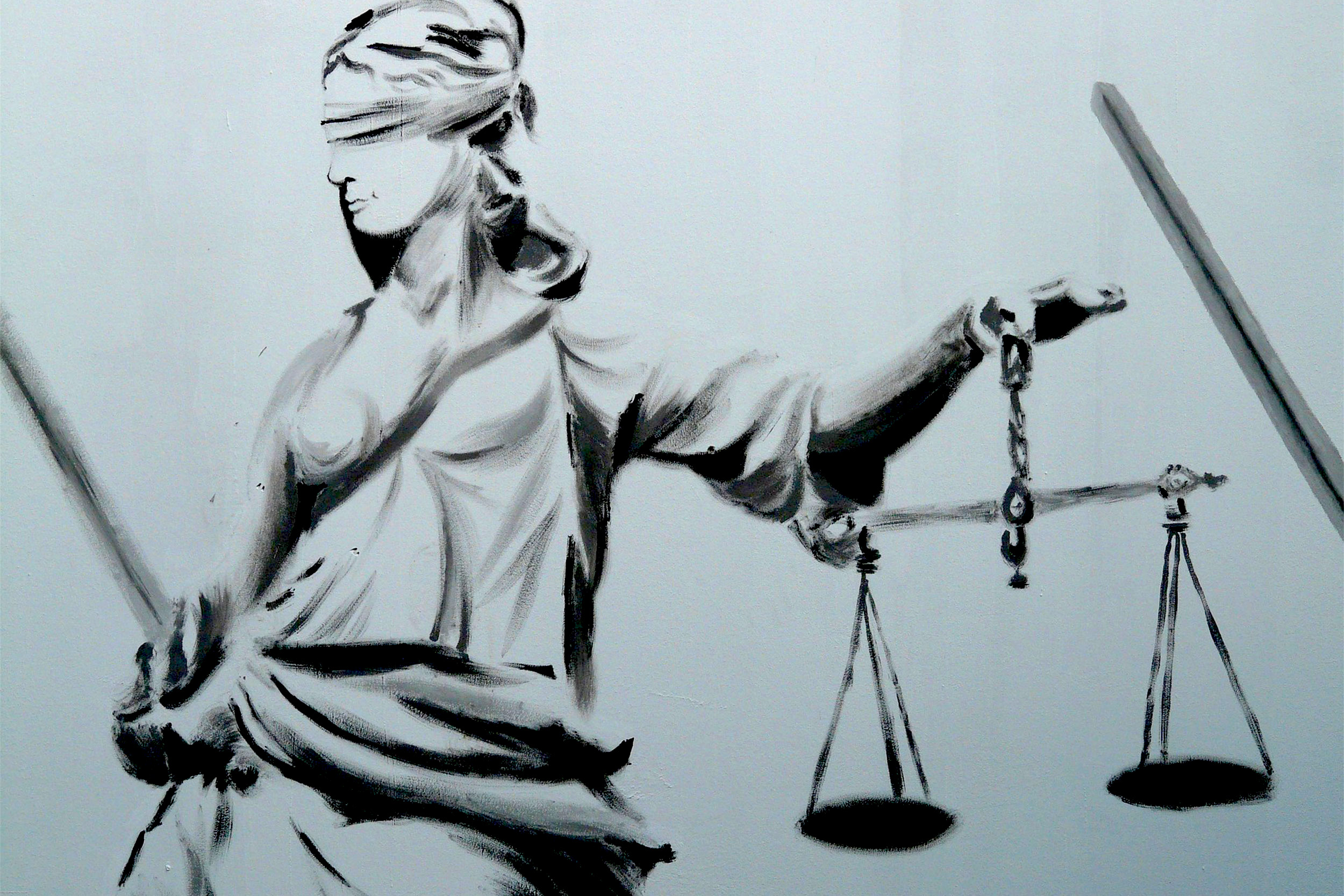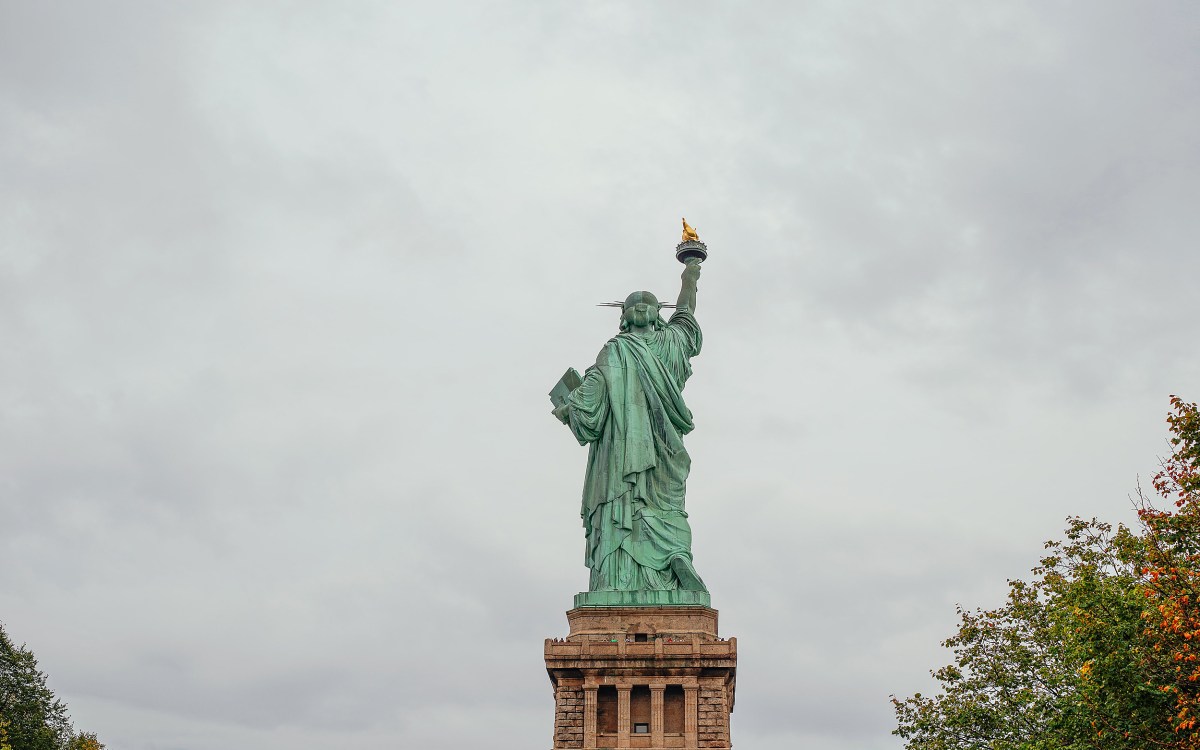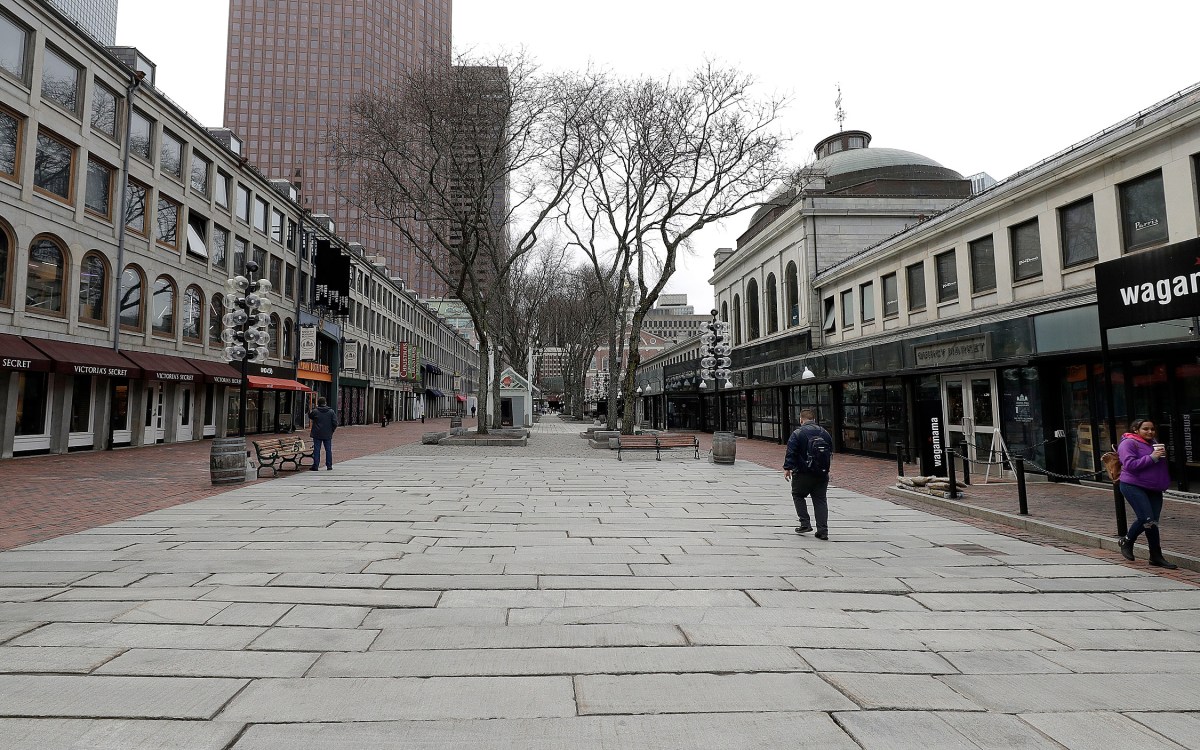
Hans Braxmeier/Pixabay
Keeping ethics alive during the pandemic
Center for Ethics launches COVID-19 Rapid Response Impact Initiative
This is part of our Coronavirus Update series in which Harvard specialists in epidemiology, infectious disease, economics, politics, and other disciplines offer insights into what the latest developments in the COVID-19 outbreak may bring.
With life-and-death issues of health and medicine foremost in our minds, ethics can get short shrift. To bring them to the public eye, the Edmond J. Safra Center for Ethics has issued the COVID-19 Rapid Response Impact Initiative, a series of white papers from some 40 thinkers on issues of justice, values, and civil liberties designed to inform policymakers during the crisis.
“Integrated policymaking recognizes that really hard problems typically need to combine multiple kinds of expertise,” said Center for Ethics Director Danielle Allen. “The challenge is how to integrate different kinds of expertise.”
While peer-reviewed publications can quickly publish and share work by the medical and scientific communities, too often ethics and the social sciences get only scattered articles or newspaper op-ed columns. This series, Allen said, responds to that challenge. “We need to keep ethics and values at the center of the conversation.”
Launched last month with “Securing Justice, Health and Democracy against COVID-19,” the series addresses pandemic-specific issues such as balancing the necessity of social distancing against the right of assembly and the moral imperative of widespread diagnostic testing. The center is scheduled to release an integrated policy road map for a national response to COVID-19 next week.
“You have to make sure that with any tactics that you pursue to secure public health, you also look at the impact on our liberties,” said Allen, the James Bryant Conant University Professor and lead author on that first white paper. That paper — co-authored with Assistant Professor of Philosophy Lucas Stanczyk; James A. Attwood and Leslie Williams Professor of Law I. Glenn Cohen; Executive Director of the Petrie-Flom Center for Health Law Policy, Biotechnology, and Bioethics Carmel Shachar; Columbia University Professor of Economics Rajiv Sethi; Microsoft economist Glen Weyl; and Georgetown Law Professor Rosa Brooks — says: “The goal is not to defeat the adversary at any cost but to preserve one’s society.”
Although the papers’ focus is COVID-19, many of the topics are similar to those that arose during previous crises, such as the issues surrounding testing and contact tracing during the HIV/AIDS crisis.
“These were problematic in the early days of the battle,” said Allen. “But the approaches evolved over time precisely because of civil liberties concerns. So now, for example, New York has a great testing and contact-tracing program for HIV, which is driven by community organizations. In other words, [it ensures] that the point of testing and tracing is people’s health and well-being and warning the community about potential dangers, not surveillance.”
Other papers deal with problems specific to this pandemic. Melani Cammett and Evan Lieberman’s paper, “Building Solidarity: Challenges, Options, and Implications for COVID-19 Responses,” examines the nature of social cohesion, looking at the ways in which cooperation can be fostered by social and governmental organizations even as we keep apart.
“Everybody needs to be together in this, to comply with some of the very stringent practices that we are all being asked to abide by at this moment” said Cammett, Clarence Dillon Professor of International Affairs in the Department of Government and chair of the Harvard Academy of International and Area Studies. “This can become particularly challenging because we are a very fractionalized society.
“Social behavior is not entirely driven from the top down, but it is well known that the top down does play an important role in driving pro-social behavior,” she said. “We’re speaking to public officials and community and religious leaders who, in many places, are playing an incredibly constructive role in both maintaining a sense of community among their congregants and also promoting the proper behaviors to comply with public health directives.”
David Campbell, Packey J. Dee Professor of American Democracy at Notre Dame University, writes about activating volunteerism in an era when people cannot physically meet. “If there is one thing Americans are known for, it’s their high level of volunteerism,” he said. “As we weather the COVID storm, it will be critical to activate these volunteer networks.” He cited the innovative ways groups are using social media to support and organize volunteerism, such as movements by people stuck in their homes to sew face masks for local clinics and pharmacies. “With that sort of effort multiplied throughout the country, one can begin to appreciate the untapped potential of America’s volunteer army,” he said.
The Center for Ethics will host a public panel Thursday at 5 p.m. on Zoom, featuring Paul Farmer, M.D./Ph.D. ’90, the Kolokotrones University Professor of Global Health and Social Medicine, Department of Anthropology, Harvard University; Govind Persad, assistant professor, Sturm College of Law, University of Denver; Allison Stanger, a professor at Middlebury College and Human Values Senior Fellow at the Safra Center for Ethics; and Allen discussing COVID-19 and the work coming out of the white paper series. A second public talk will follow on April 23, with Laurence Ralph, John L. Loeb Associate Professor of the Social Sciences, focused on policing and COVID-19.






